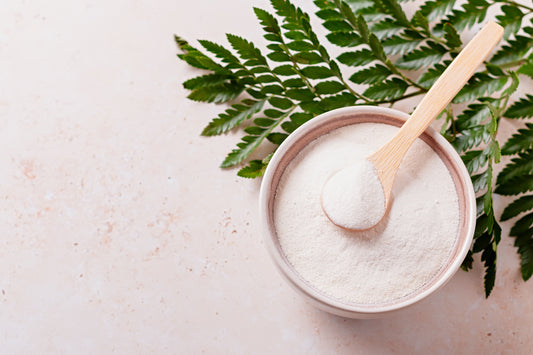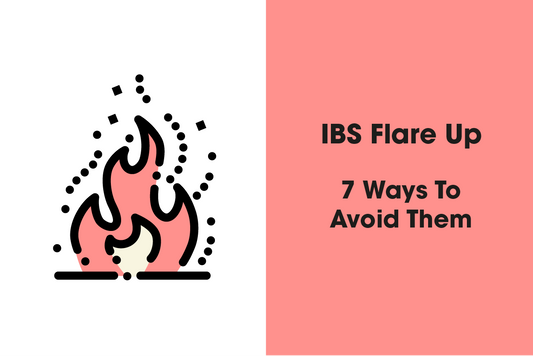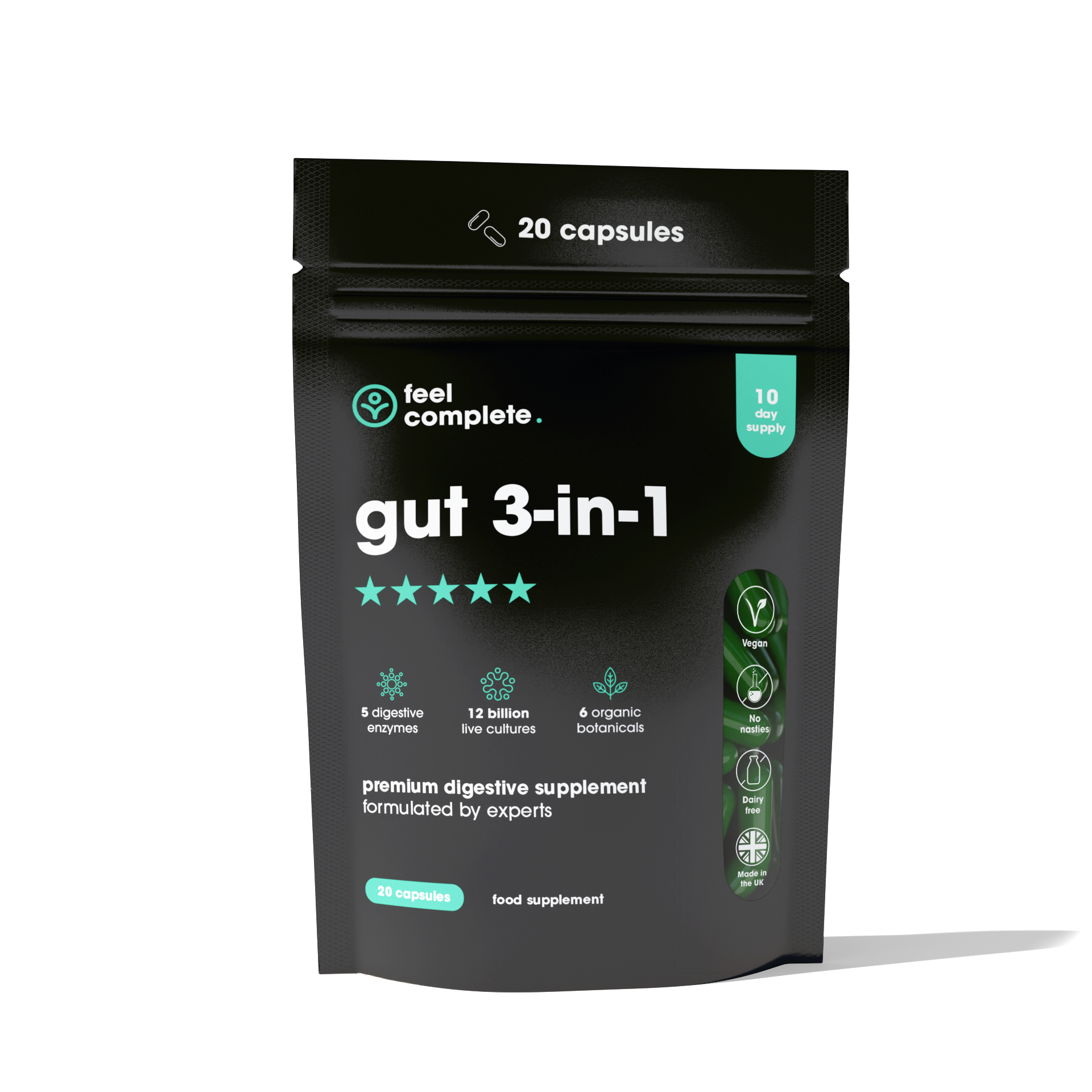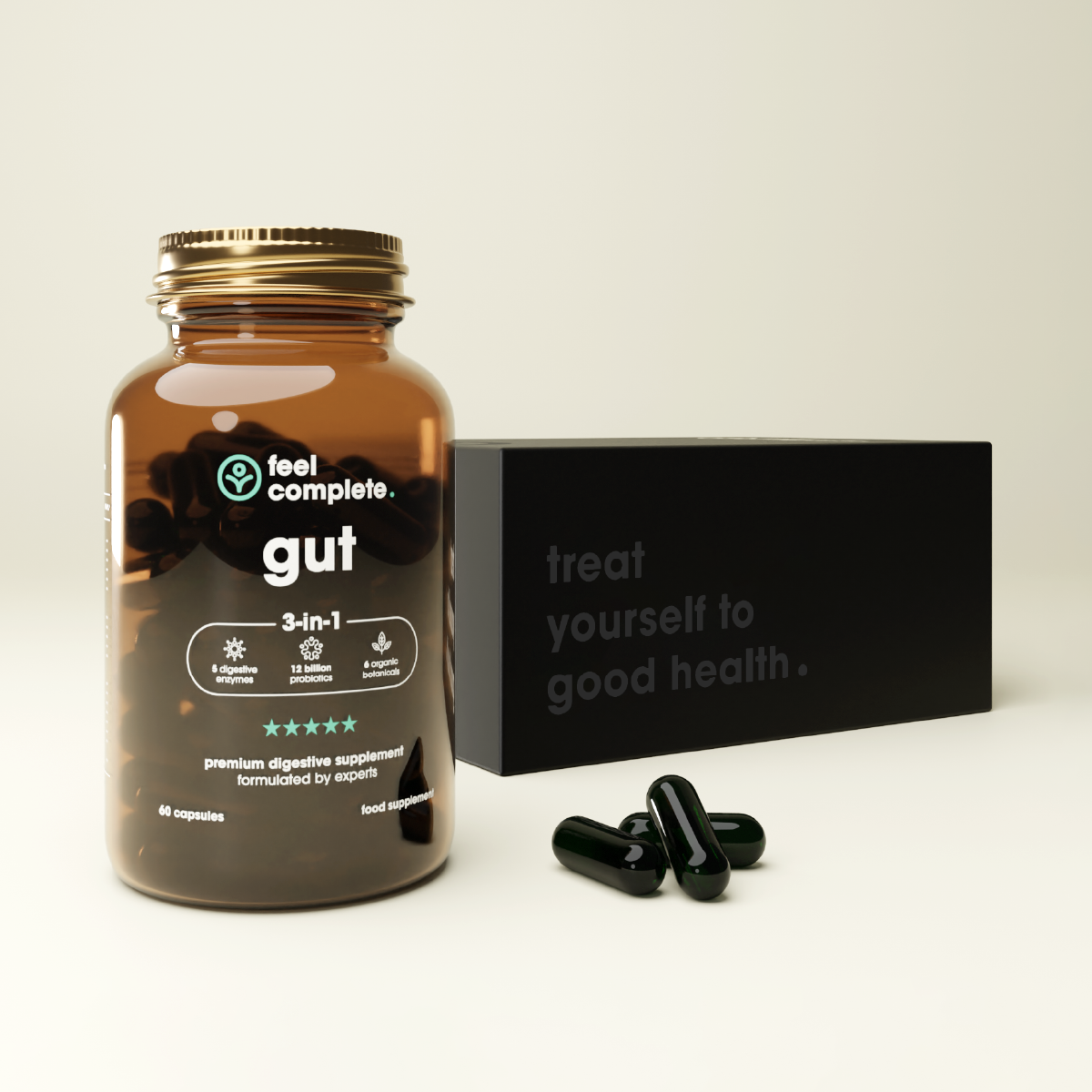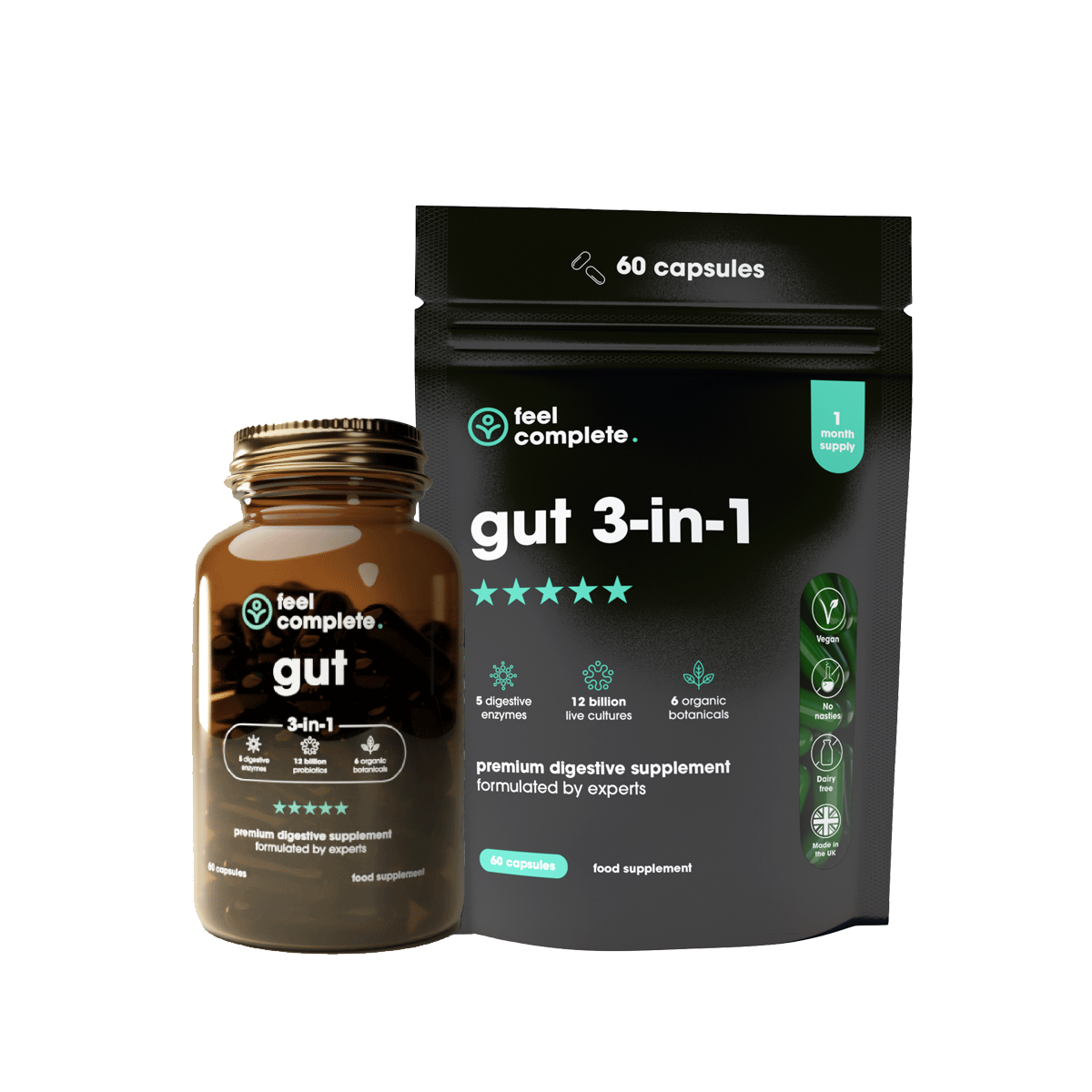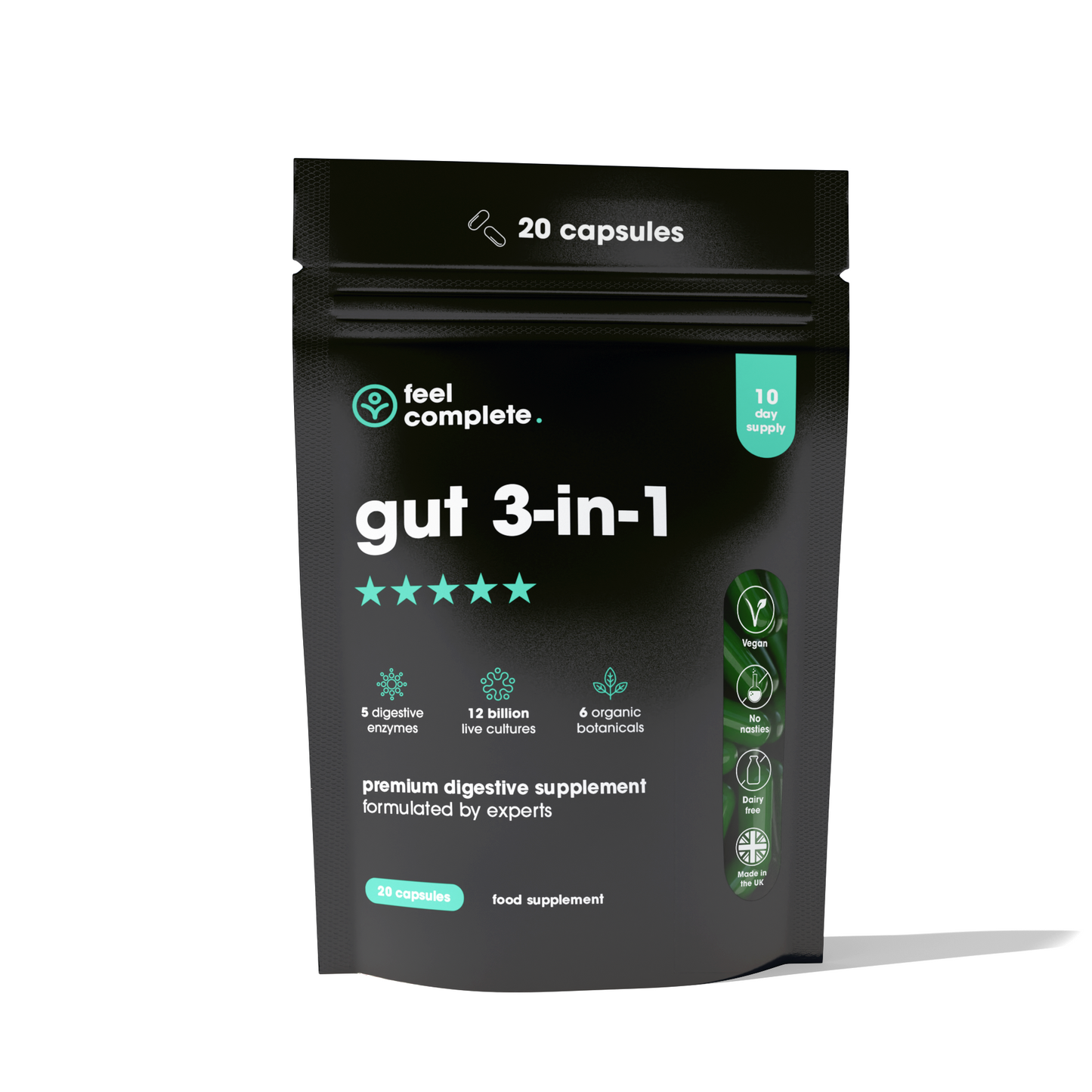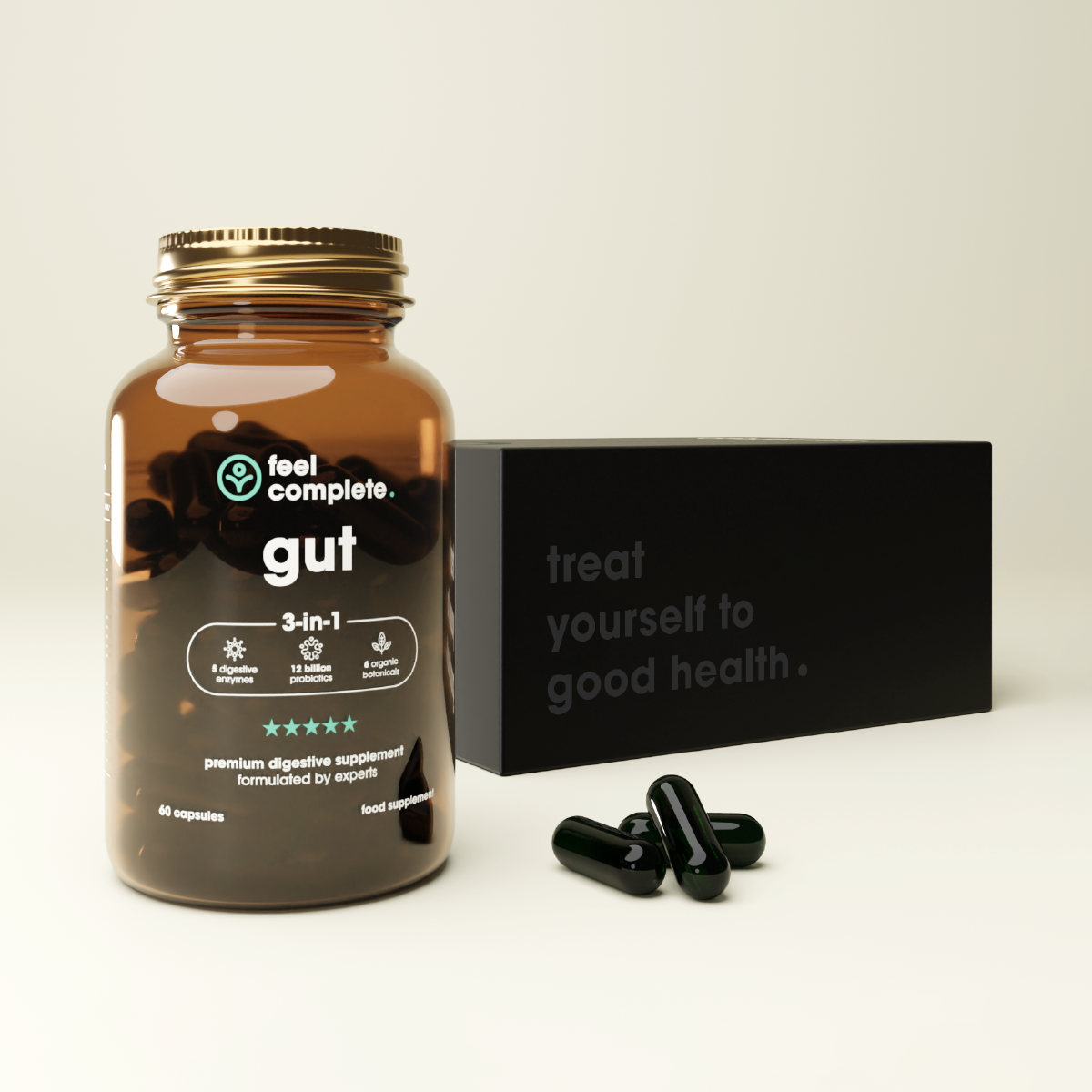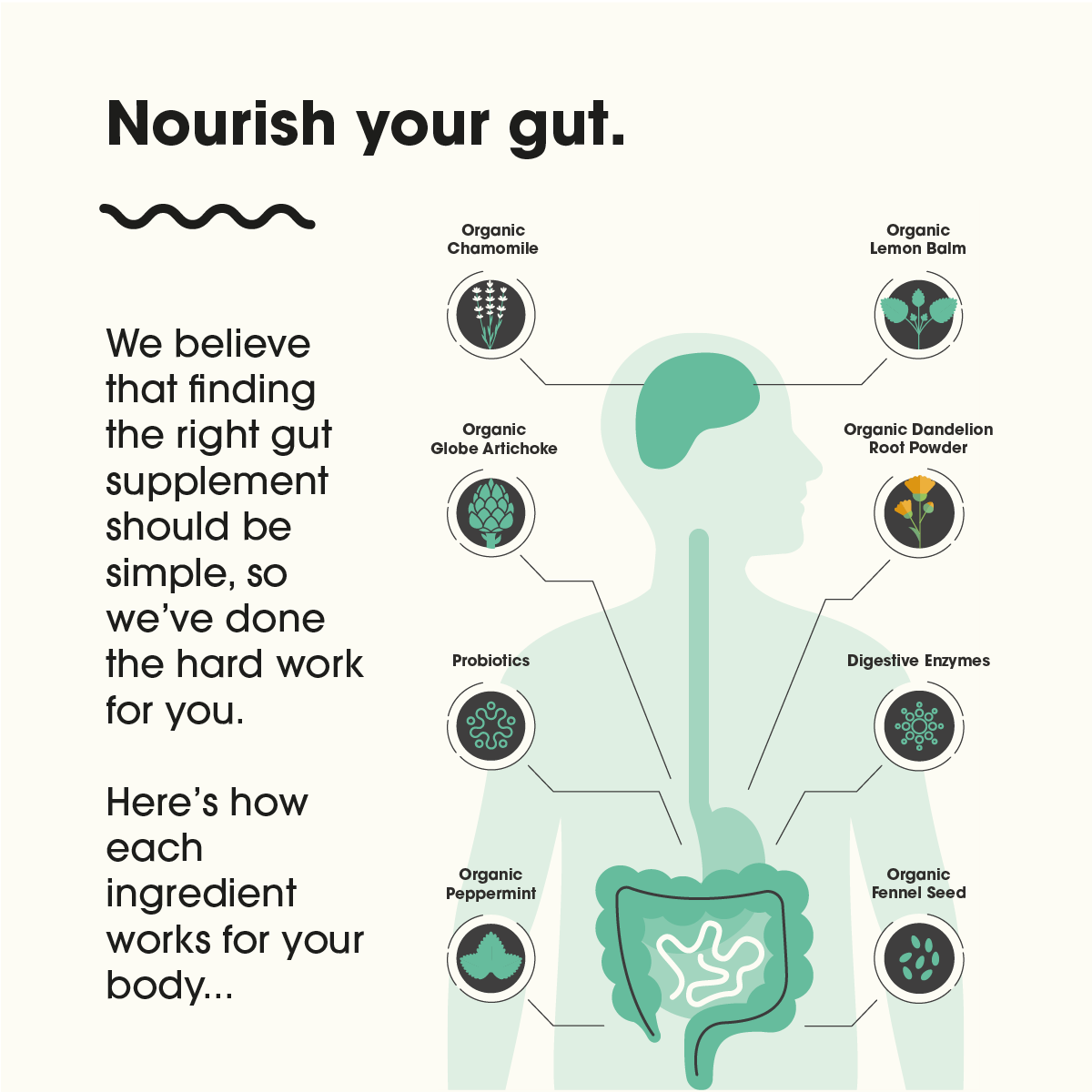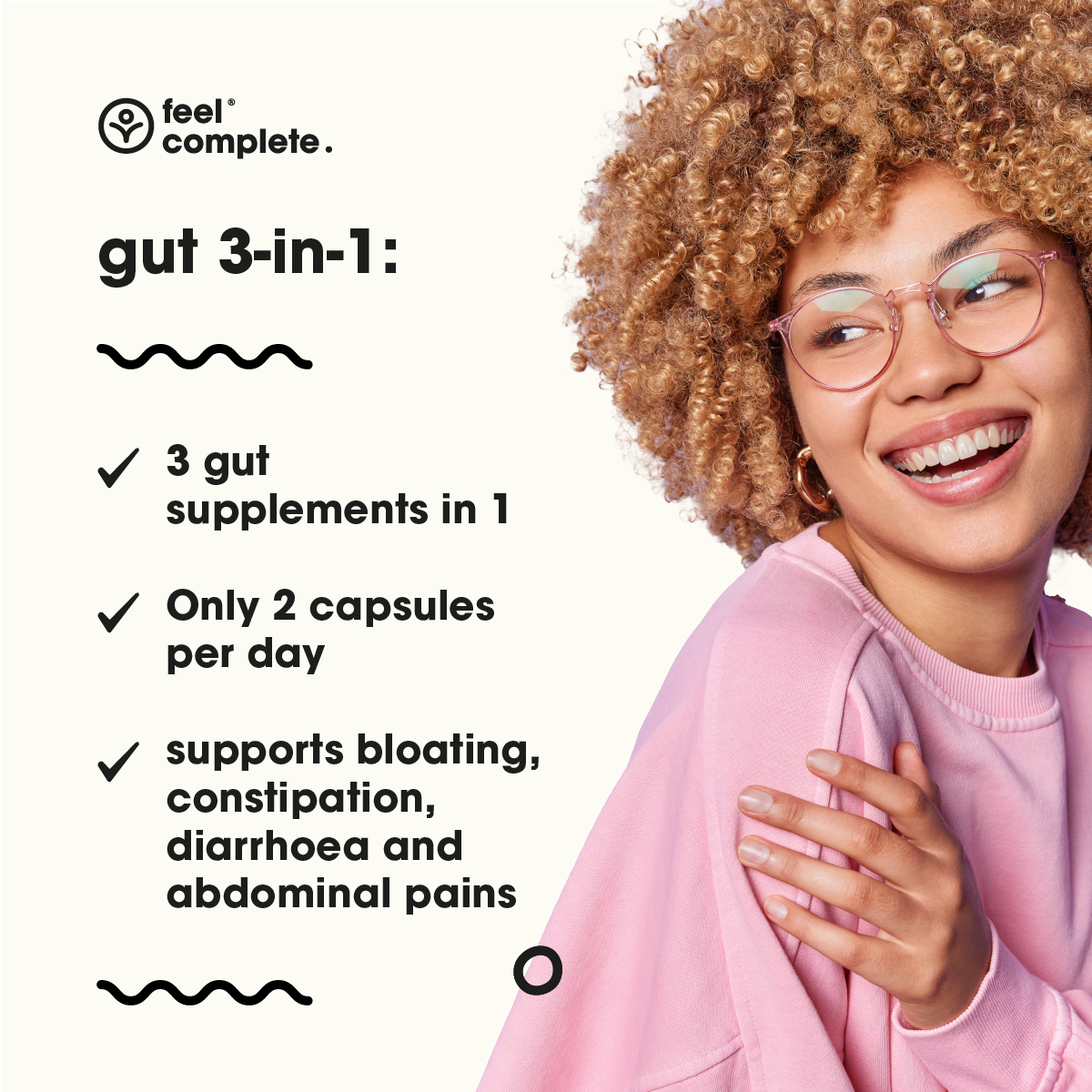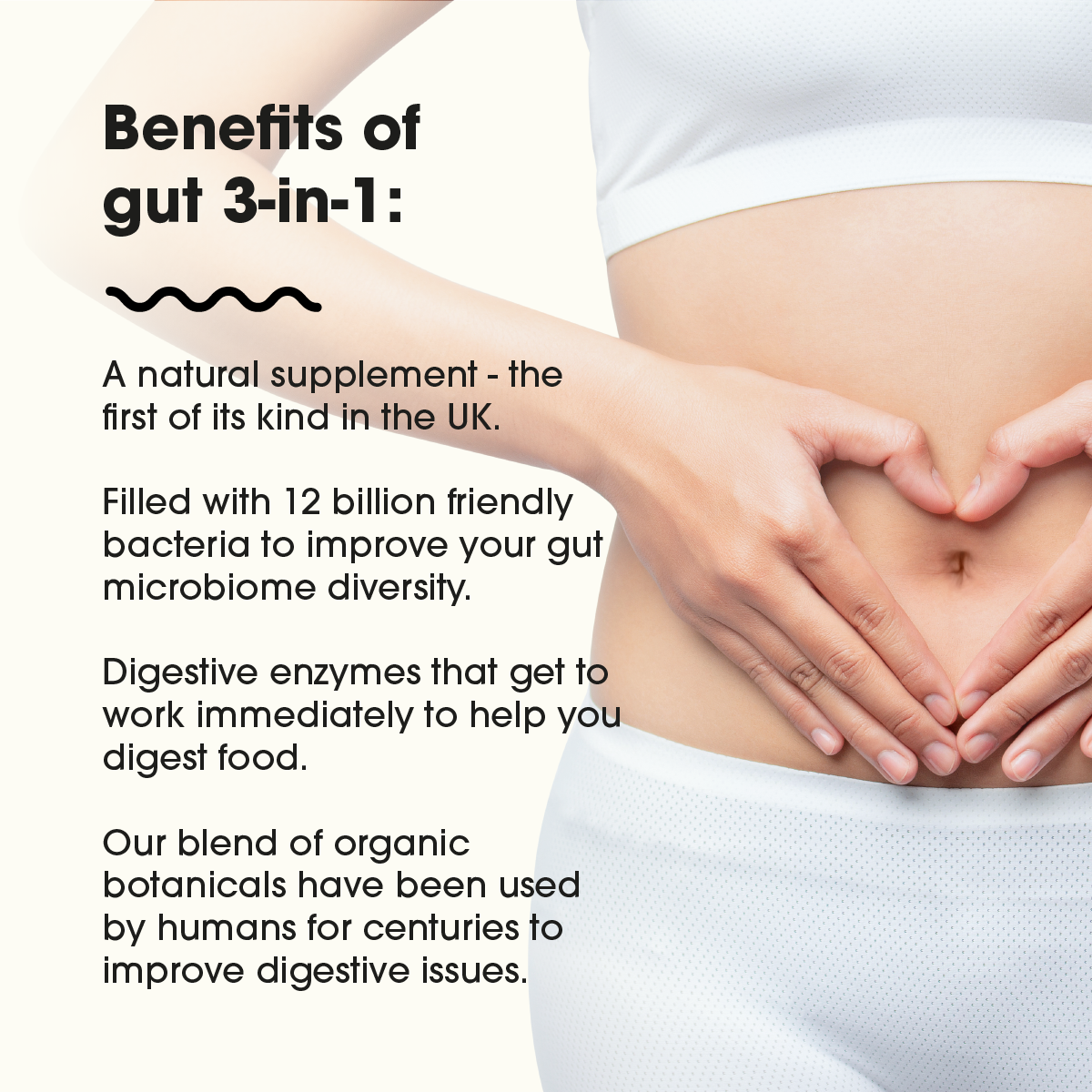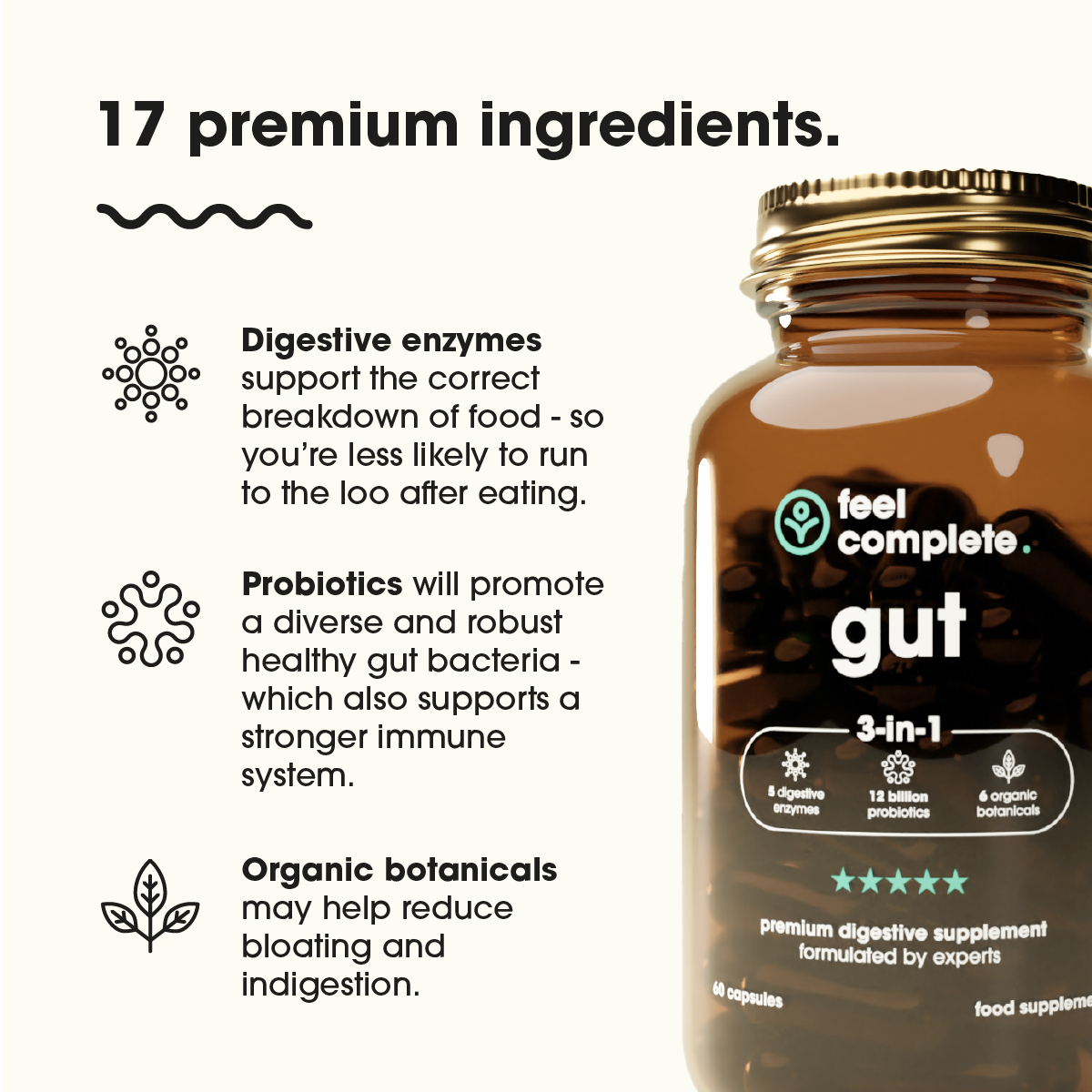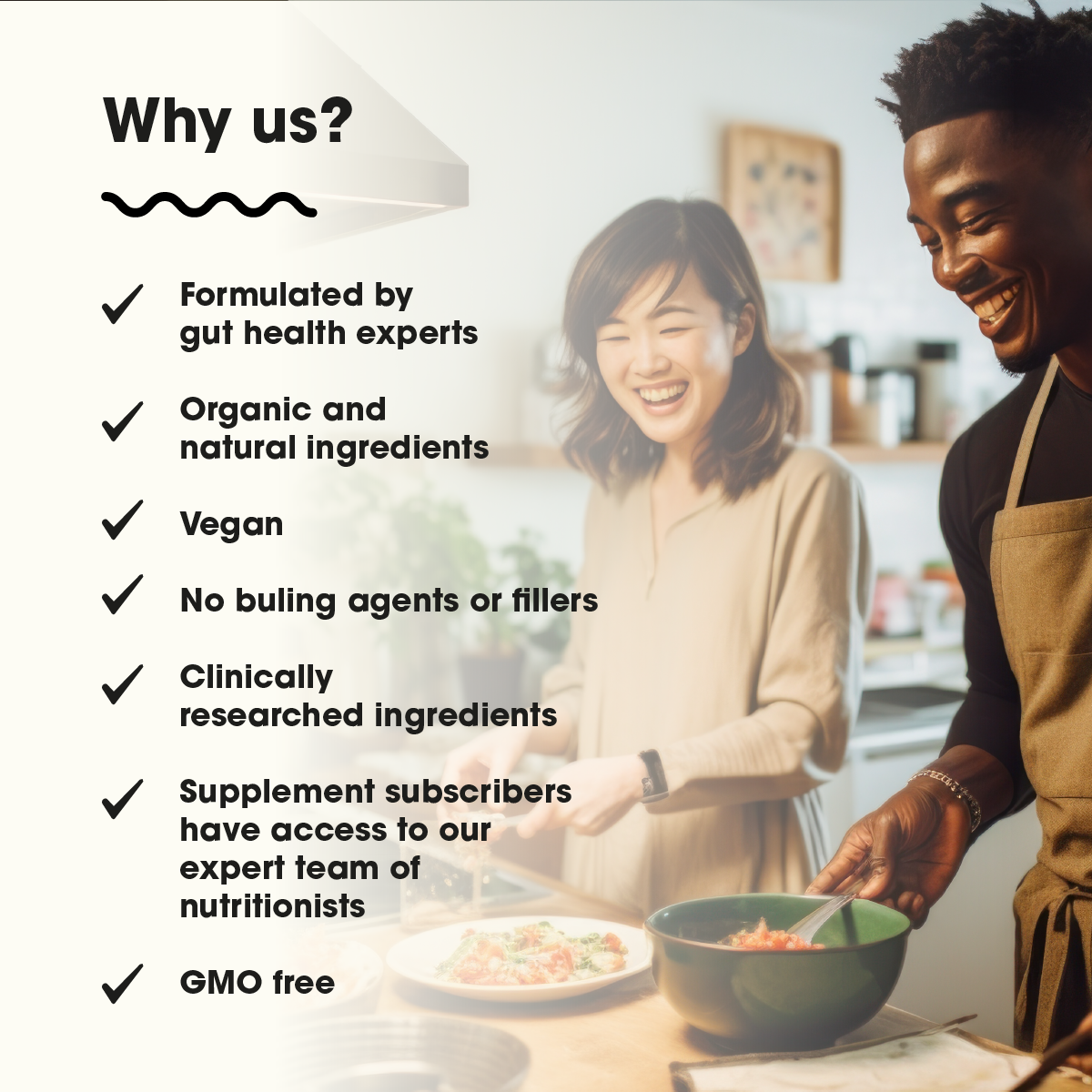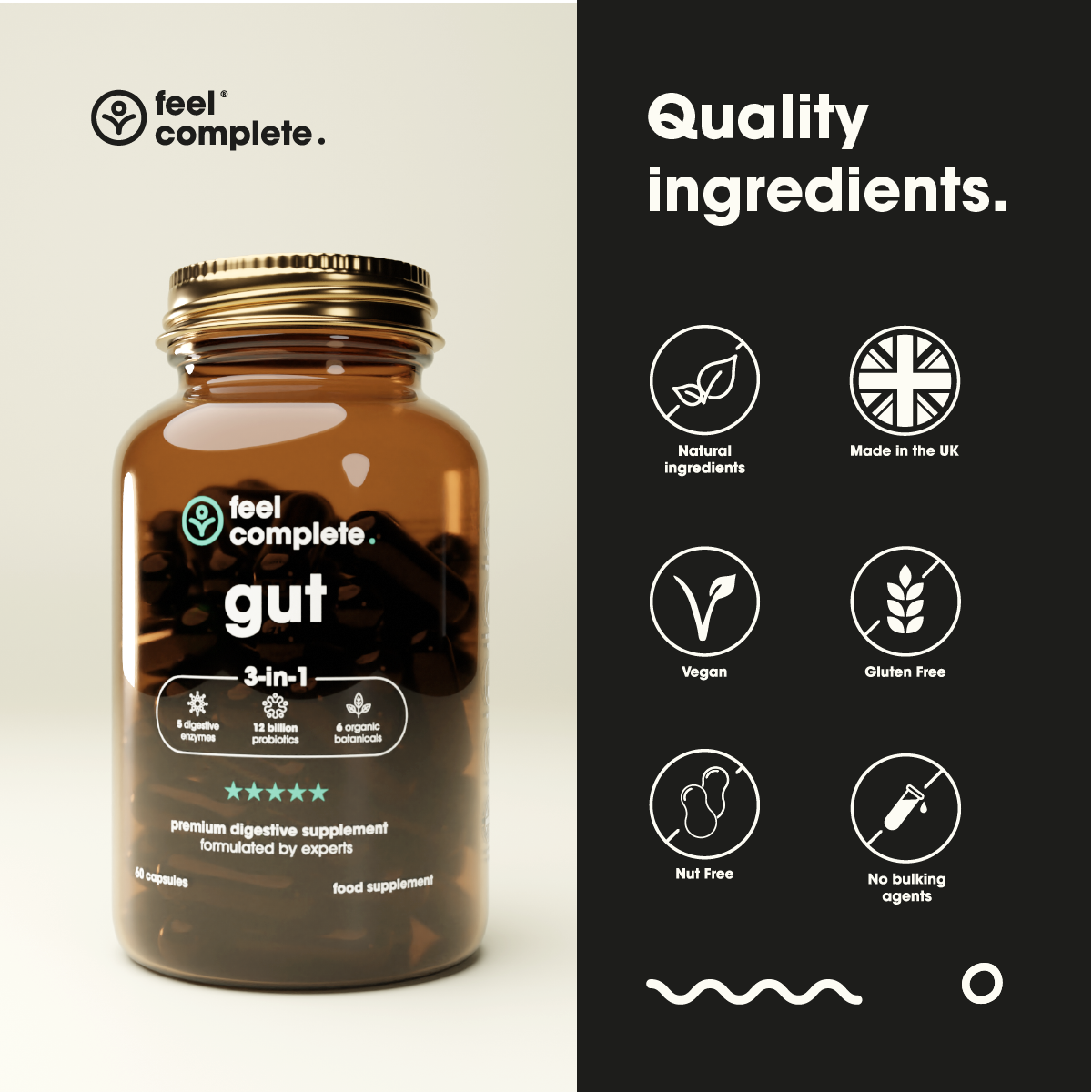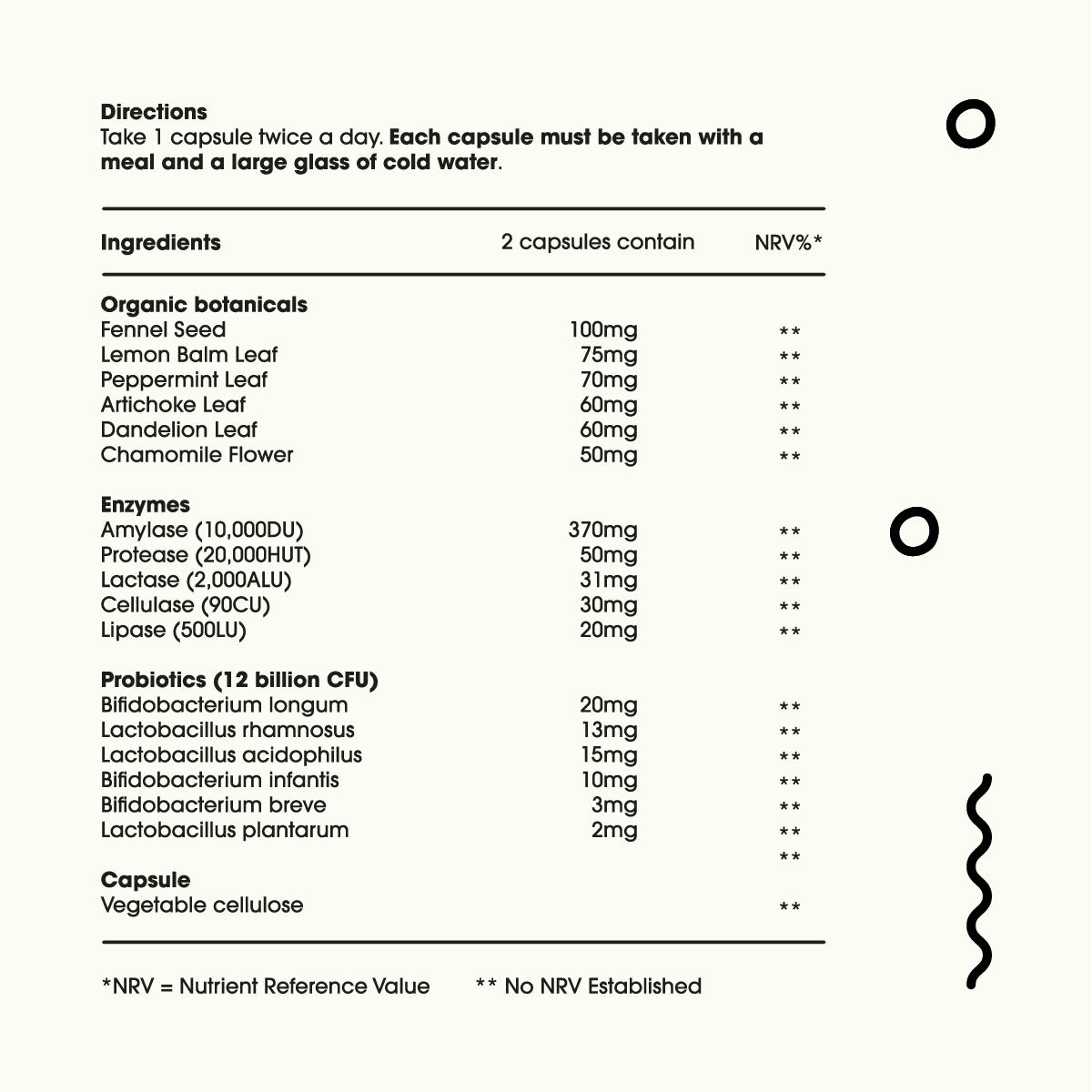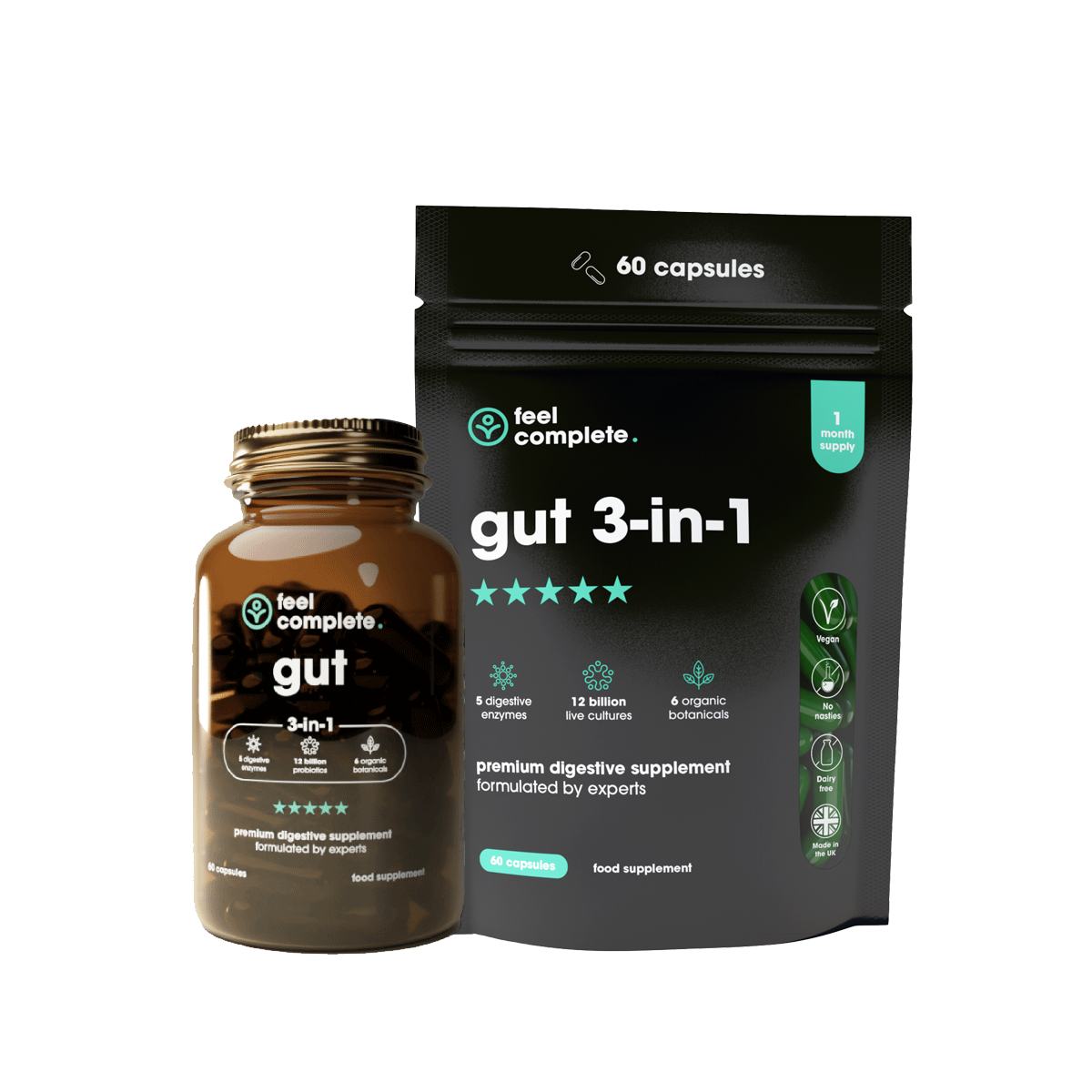Infertility affects between 10-15% of couples, which is a staggering number. And while there could be a number of factors involved, what we want to focus on in this post is the link between fertility and gut - something many people don't know.
Before you continue reading, we want to remind you that fertility is hugely personal, which is why we highly recommend you contact a professional nutritional therapist for a 1-1 personal session. This guidance and support will allow you to identify, address and support all areas that may be affecting your fertility, and what solutions are available for you and your partner's fertility.
With that said, let's continue with the link between fertility and gut health.
The gut microbiome
The gut microbiome is a term we use to describe microorganisms like bacteria, yeast and fungi that live in your digestive system. These play a critical role in our overall health and well-being. A lot of these bacteria are beneficial but there are some troublesome ones that disrupt this balance. This bacteria imbalance is known as “dysbiosis” and it's a sign that the bad bacteria are winning.
But what exactly causes this imbalance? Many things could be disrupting this balance including the following:
- Diet (our food choices)
- Lifestyle
- Lack of movement
- High stress
- Medications (including overuse of antibiotics)
As you can see, these are all things you have direct control over and can change so that your gut health improves. But we know what you're thinking so let's answer that for you!
How is this linked to fertility?
When hormones have served their function on their target tissues or organs, they're destroyed by the liver and then removed by the kidneys. But what happens if the gut is not working properly? What if you are suffering from constipation and all your stool waste is building up or you have this bacterial imbalance? In this case, sex hormones like oestrogen will not be able to be eliminated correctly.
As a result, this will then cause reabsorption and recirculation of oestrogen. Though you may not connect the dots, this will show as bloating, PMS and breast tenderness. And if you have a condition like Endometriosis or fibroids which are oestrogen dependent, then this can affect your fertility.
Another hormonal imbalance condition that can arise as a result of poor bowel movements is PCOS. In other words, when your bowels aren't removing the oestrogen it no longer needs, the excess oestrogen can lead to abnormal inflammatory response causing pain.
So addressing the issues in your gut is not only important for fertility reasons but also for your overall health.
What does science say about gut and fertility?
There is plenty of data showing that gut bacteria can contribute to immune system issues, insulin resistance, impaired sex hormone progesterone production, ovarian issues and inflammation, all of which affects fertility.
Optimal digestion = optional nutrient absorption
When we eat, our body takes this food and breaks it down. Then the nutrients get absorbed into the bloodstream. From there it can be used by the cells throughout the body and give us energy. Whatever is not absorbed into the bloodstream becomes liquid waste that the large intestine turns into solid waste (stool).
As you can imagine, it's very important that the foods we eat are broken down properly so that nutrients get absorbed. It's also important for the intestinal lining to be strong enough to absorb optimally.
This is why, for example, zinc is a key trace mineral for fertility i.e. for sperm and egg health as it's absorbed through the small intestine. In simple terms,the health and strength of the small intestine and its ability to correctly absorb nutrients is essential for your fertility.
So what can you do to support the correct breakdown of the food you eat?
Eat slowly! This can have a big impact on digestion as taking your time to eat means the food is broken down in the mouth so that the digestive system doesn't do all the hard work.
It sounds simple but taking your time to eat is a powerful way to help your body break down food. Another way you can do this is by taking a digestive enzymes supplement, which helps with the breakdown of food and digestion.
Check out 3-in-1 gut supplement here, which contains 5 digestive enzymes as well gut-soothing herbs and probiotics.
You can also consider taking a HCI supplement (betaine hydrochloride) or ox bile supplement to support fat breakdown.
Things you can do TODAY to support your gut and fertility
Fertility is very personal, which is why it's so important to work with a nutritionist that will design a personal plan to help you and your partner with your fertility needs. So don’t struggle alone. Get in touch with one of our nutritional therapists so you can start to identify ways you can optimise your fertility.
In the meantime, here are some ways you can start to improve your gut health and in turn, your fertility.
Food & fertility
The food we eat plays a huge role in our gut and overall health. And the more whole foods we eat, the better our health. Whole foods include fruits and veggies, whole grains such as oats, barley and brown rice as well as lean meats like fish and chicken. Legumes, nuts and seeds are also whole foods.
Challenge yourself every week by trying to eat as much whole foods as you can. For example, try to eat 30 different plants every week of fruits, vegetables, nuts and seeds. It may sound a lot but you can have as many as 10 in one dish if you wanted to - think salad!
Why the variety of whole foods? Your gut microbiome thrives on diversity so the more diverse your food, the happier it will be. And a happy gut means fertility issues should significantly improve.
Your environment & fertility
We don’t often think about it, but the toxins in our environment can hugely affect our health including fertility. For example, consider Xenoestrogens. These are synthetically manufactured estrogens, which are found in many household and everyday products. What is wrong with them? Well, these act as hormone disruptors by negatively impacting the production and normal levels of your body's own hormones.
They can also negatively affect the gut microbiome. To support your hormones better, look up the dirty dozen list for the highest pesticide content. Go here to download the pdf report to see which foods have the highest levels of pesticides and which are safe to eat.
Avoid plastic as much as possible. For example, only drink from a glass bottle with filter, look for BPA free tins - Biona are great and switch to natural products. You can look up their toxic levels through apps like “Think dirty.”
Weight and fertility
Like the foods we eat, what we drink, the products we use and environmental toxins, excess weight can also harm fertility. Research shows that overweight and obese people have a harder time getting pregnant as it affects ovulation. For overweight or obese men, this means lower sperm or none at all.
Not to mention, even if a woman were to conceive while overweight or obese, she would be at a higher risk of high blood pressure and blood clot issues.
This is why getting to a healthy weight is key to your fertility and overall health. If you struggle to keep weight off or just tired of trying different diets that don't work, why not work with one of your nutritionists?
Having a 1-1 private consultation can help you on your journey to improving fertility and your health in general. Book a free 15 minute consultation here.
Top tips for fertility
Here are a few more ways you can reduce your exposure to environmental toxins and eat clean:
- Remove or reduce processed foods
- Include lots of prebiotic foods for that good bacteria balance like apple oats, garlic, leeks and onions
- Fermented foods for our good bacteria too like kefir, live natural yoghurt, refrigerated sauerkraut and kimchi, add to the side of your meal as a nutrient boost
- Take away as many artificial added sweeteners as possible. They are hidden everywhere from your chewing gum, to your premade sauces to cough syrups, chewy vitamins and even toothpaste and mouthwash. Replacing this with no added chemical sweeteners can support your gut bacteria and your hormones!
Bottom line
Change happens overtime, not overnight. So give yourself time to make changes so that you stay consistent. For example, start with the basic things you change such as reducing things that are harming your health and your chances of conceiving a child.
If you smoke, cut down smoking until you finally stop. Stop drinking alcohol, and be aware of what you eat, use and your environment. In addition to highly processed foods, chemicals are also bad news for fertility. So get tested as chances are, you have been exposed to heavy metal or have parasites.
Did you know…?
Understanding your fertility window can really support conception, opening about six days before a woman ovulates due to male sperm living for several days and even up to a full week. There are plenty of apps to support this understanding of a fertility window. If in doubt, seek professional advice.



